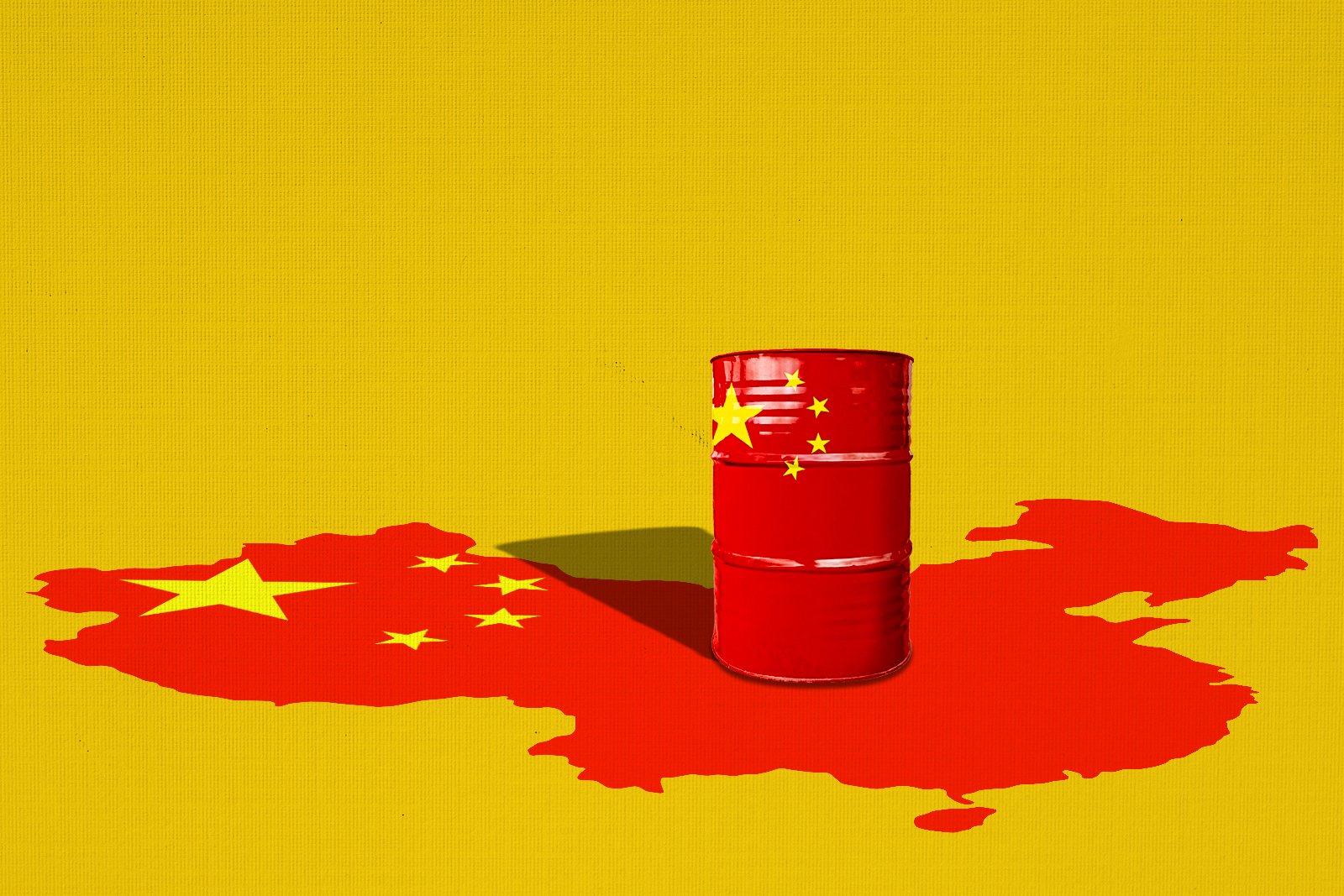
U.S. Must Act to Safeguard Future of Energy Trade
In response to the evolving challenges posed by China’s intricate trade dynamics and the covert exploitation of the energy sector by heavily sanctioned regimes like Venezuela, Iran, and Russia, the United States and other Western governments must adopt proactive measures. President Xi Jinping’s fervent pursuit of China’s maritime dominance, coupled with its role as the world’s foremost importer of crude oil, underscores the urgency for strategic action.
As China expands its ports network and sea lanes, it simultaneously fosters an alternative market for sanctioned oil through sophisticated and secretive practices. By receiving redirected shipments and payments from sanctioned nations, China circumvents international regulations and Western financial systems. This clandestine trade network not only undermines the global financial order but also enables sanctioned regimes to evade the impact of Western sanctions effectively.
In light of these developments, the United States and other Western governments must intensify efforts to understand and counteract these evasion tactics. It is crucial to examine the financial linkages between sanctioned regimes and their economic cooperation with China, recognizing that these countries do not operate in isolation but rather in interconnected networks. By analyzing evasion techniques developed by previously sanctioned regimes and their potential adoption by newly sanctioned countries, Western governments can enhance the efficacy of sanctions and mitigate unintended consequences.
By scrutinizing China’s growing reliance on the yuan for international transactions and its expanding influence in the energy sector, the United States and the West can develop a comprehensive understanding of the evolving geopolitical landscape. This understanding will enable them to formulate more effective strategies to uphold regulatory integrity and safeguard global economic stability.
In essence, the United States and other Western governments must adopt a multifaceted approach that encompasses enhanced transparency, accountability, and collaboration. By addressing the root causes of covert exploitation and bolstering regulatory frameworks, they can effectively counteract China’s trade dynamics and mitigate the adverse effects of sanctions evasion by heavily sanctioned regimes. Through strategic cooperation and decisive action, the West can uphold its principles and interests while promoting a more secure and resilient global economy.
President Xi Jinping’s ambition for China to become a maritime superpower accounts for Beijing’s massive expenditure – now running into the billions over recent years – on the expansion of its ports network and sea lanes. China stands out as the world’s largest importer of crude oil, and since the early 2000s has been looking to expand and diversify its sources of supply. China’s policy has resulted in the creation and growth of an alternative market for sanctioned oil.
However, China’s actions, which are sophisticated and often secretive, undermine the global financial system. It receives redirected shipments and unchecked, uninterrupted, and undetected payments from sanctioned nations. In 2023, China reportedly saved ten billion dollars by purchasing crude oil from sanctioned countries, namely Iran and Russia.
The Beijing oil trade system bypasses international maritime rules and Western banks, and increasingly, payments are denominated in the Chinese yuan. This is highlighted in a 2023 study which found that Russia is using the Chinese yuan for at least a fifth of its imports to evade sanctions. As both customer and owner of the currency, China generates an increasing reliance on Beijing from third countries. Indeed, bilateral trade between China and other members of the BRICS and other mineral-rich countries is on the rise.
For the past several years, Venezuela has been vocal about its intentions to diversify its oil export destinations. It has openly looked to reroute oil trade relationships away from its reliance on the United States and instead toward partners in Asia, including China.
During the crisis in Venezuela, Western sanctions were applied against the Maduro regime and its associated entities. Notably, on January 28, 2019, under Executive Order 13850, the United States Treasury designated Venezuela’s state-owned oil giant, Petróleos de Venezuela, S.A. (PdVSA), as operating in the oil sector of the Venezuelan economy, and the Secretary of the Treasury determined the company was subject to United States sanctions. Executive Order 13850 froze all property and interests of PdVSA, prohibiting United States persons (companies or individuals) from engaging in transactions with the company.
With the country in a socioeconomic crisis, PdVSA’s European offices were moved from Lisbon to Moscow as part of a complex strategy to grow the export of Venezuelan oil to non-Western markets. This action was carefully devised to mitigate the risk of secondary sanctions. With Russia’s pariah status now making business much more difficult, Venezuela can no longer depend on Moscow’s assistance and is instead selling oil to small refineries in China, dubbed as “teapots,” and funneling funds into small local Chinese banks.
Since at least 2002, Chinese client Hangzhou Energy has been a recipient of substantial oil allocations from PdVSA, totaling an estimated $7 billion over the past few years. A recent investigation into their dealings has surfaced troubling corruption. At the heart of this corruption lies Ramon Carretero, a Panamanian national who has been identified as a proxy for Maduro’s relatives since the beginning of the 2010s.
The Joy Kie Group, or as it appears in PdVSA internal documents to be ‘Hangzhou Energy,’ has traded extensively with Carretero’s network of companies. Documents reveal that Carretero acted as a representative for Distribuidora Rali, Lanvicorp, and Corporation Logistica Del Caribe, all under the umbrella of Joy Kie’s corporate dealings.
Carretero and the Joy Kie Group’s relationship extends beyond transactions. For example, they formed the now-dissolved joint venture ‘Jiuheng Energy’ back in 2017. Carretero’s association with Hangzhou-based companies dates back to the construction of the Caracas baseball stadium, a project mired in allegations of corruption and lack of transparency, where Joy Kie facilitated transactions.
As investigations continue to unravel, the need for transparency and accountability in international business dealings is clear. Regulatory authorities must hold accountable those responsible for the covert exploitation of the energy sector.
China’s emergence as the world’s leading crude oil importer has catalyzed a complex web of trade dynamics, including significant dealings with sanctioned nations like Venezuela, Iran, and Russia. Operating through a sophisticated and secretive industry, China bypasses international regulations and Western financial systems, conducting transactions in its currency. This clandestine trade network showcases Russia’s growing reliance on Chinese currency to evade sanctions. And, as seen in the case of Venezuela, Beijing’s expanding influence in the energy sector is evident, with Venezuela turning to China amidst Western sanctions, albeit amid allegations of corruption.
These revelations underscore the pressing need for enhanced transparency and accountability in global business practices to thwart covert exploitation and ensure regulatory integrity.
In response to these challenges, Western governments should start looking into financial linkages between heavily sanctioned regimes and their economic cooperation with China, and consider how newly sanctioned countries can use evasion techniques developed by previously sanctioned regimes. This will help the United States and other Western sanction-wielding governments improve the design of sanctions and close loopholes before they can be exploited. Such analysis would also help understand what sanctions can and cannot achieve, and what unintended consequences they could result in.

